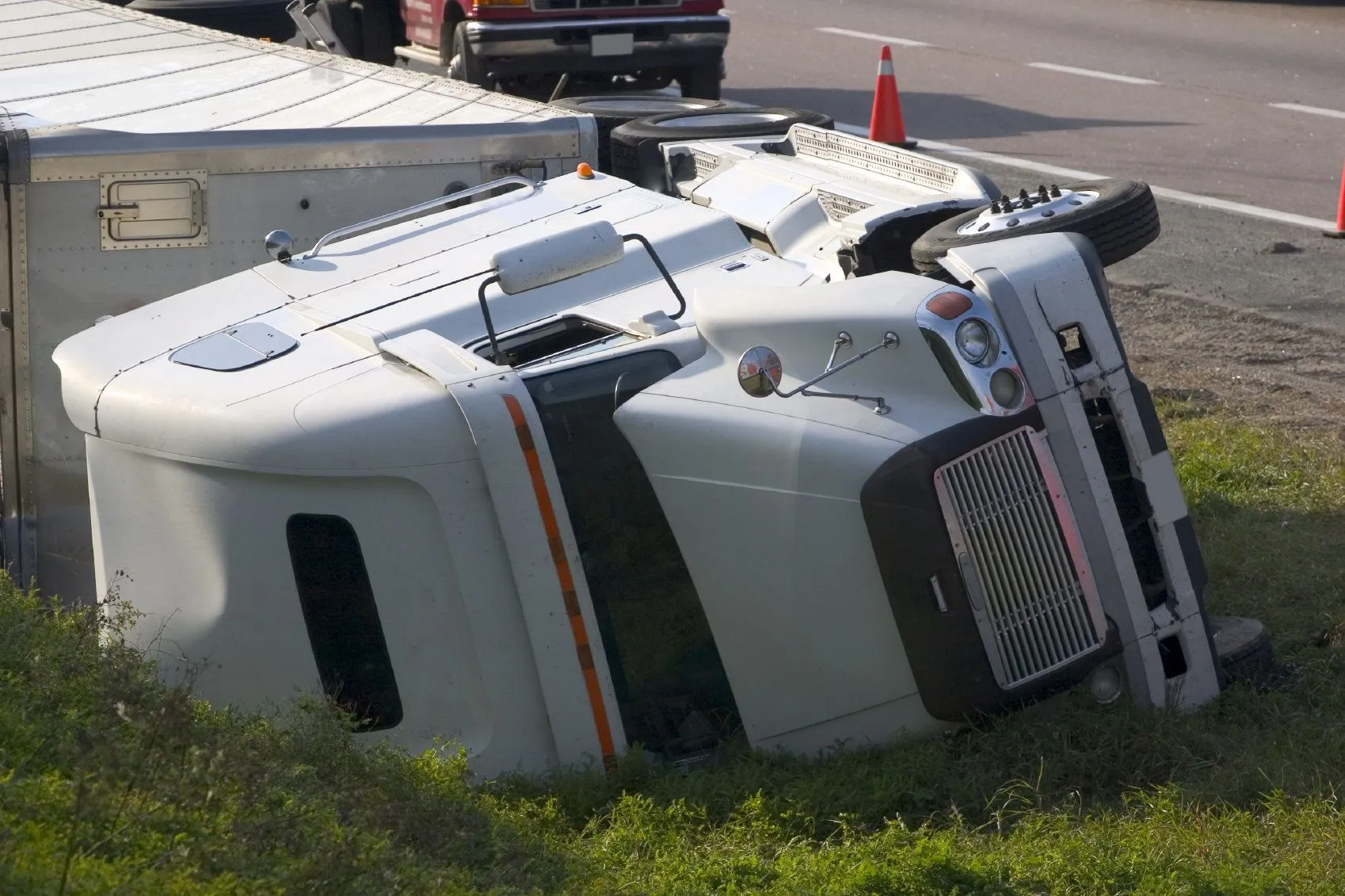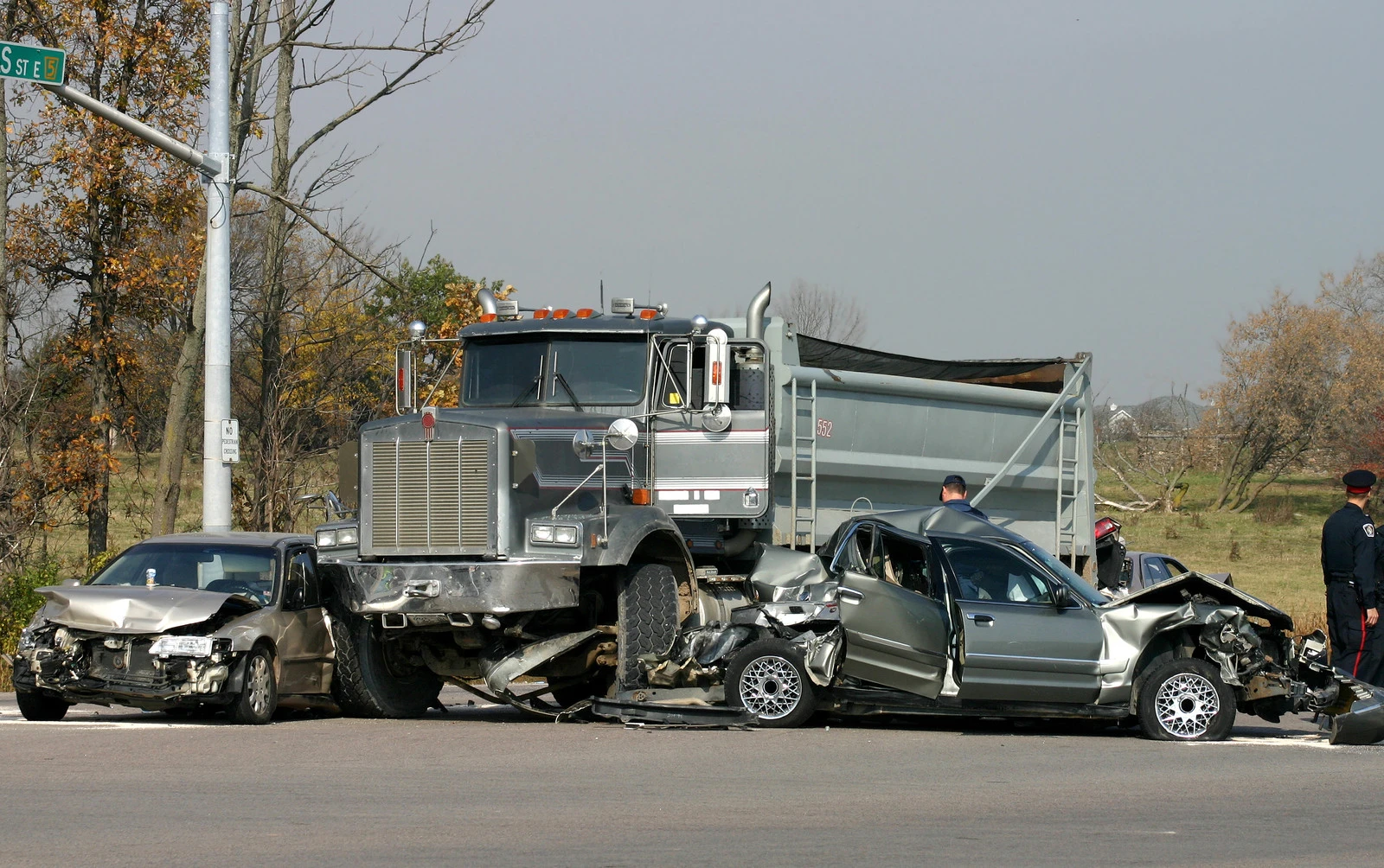How Do Truck Accident Lawsuits Work
Been in a wreck with a big rig? It can be a confusing and stressful time. Truck accidents can cause serious injuries and leave you with piles of medical bills. If you’re wondering how to get the compensation you deserve, a truck accident lawsuit might be the answer. How Do Truck Accident Lawsuits Work?
Let’s break it down.
What is a Truck Accident?
A truck accident is a collision involving a large commercial truck and another vehicle, pedestrian, bicycle, or object. These accidents tend to be more severe than regular car accidents due to the immense size and weight difference between trucks and other vehicles.
Types of Truck Accidents
Rear-End Collisions
Due to their weight, trucks require a greater stopping distance. When a car cuts them off or doesn’t leave enough space, a rear-end collision can occur, causing significant damage to the smaller vehicle.
Jackknife Accidents
These happen when a truck driver brakes suddenly, causing the trailer to swing outwards, forming a 90-degree angle with the cab. This can lead to multiple lane closures and pile-up accidents.
Underride Accidents
When a smaller vehicle gets lodged underneath the rear of a trailer, it can be a very dangerous situation with potentially fatal consequences.
Rollover Accidents
A truck’s high center of gravity makes it more susceptible to rollovers, especially during sharp turns or sudden maneuvers. Spilled cargo or uneven weight distribution can also contribute to rollovers.
Who Is Legally Responsible for a Trucking Accident?
Unlike car accidents, truck accidents can involve several parties who might be liable for the damages. Here’s a breakdown of some potentially responsible parties in a truck accident lawsuit:
- Truck Driver: This is the most common scenario. If the driver was negligent (distracted driving, speeding, driving under the influence) and caused the accident, they can be held liable.
- Trucking Company: The truck driver’s employer, the trucking company, might also be responsible. They are required to ensure driver qualifications, proper truck maintenance, and adherence to safe driving practices.
- Truck Manufacturer: If a malfunctioning part (brakes, steering) caused the accident due to a design or manufacturing defect, the truck manufacturer could be liable.
- Cargo Loaders: Improperly loaded cargo can shift during transit, causing the truck to become unstable and crash. The company responsible for loading the cargo could be at fault.
- Other Drivers: If a third-party driver caused the accident by making a reckless maneuver, they might be responsible for the damages.
Determining fault in a truck accident can be complex and involves investigating various factors. If you’ve been involved in a truck accident, consulting with a personal injury lawyer specializing in truck accidents is recommended. They can help identify the liable parties and fight for the compensation you deserve.
Why Truck Accidents Are Different
Before diving in, it’s important to understand why trucking accidents are treated differently than your typical fender bender. These 18-wheelers are massive machines, and the consequences can be catastrophic when things go wrong. Here’s what makes them unique:
- Size and Weight: Compared to a car, a truck’s size and weight create a much greater force of impact, leading to more severe injuries.
- Federal Regulations: The Federal Motor Carrier Safety Administration (FMCSA) heavily regulates the trucking industry. These regulations cover everything from driver qualifications to maintenance practices. Breaches of these regulations can strengthen your case.
- Multiple Potentially Liable Parties: Determining fault in a trucking accident can be complex. It might not just be the driver; the trucking company, a parts manufacturer, or even a loader could be responsible. An Atlanta trucking accident attorney can help navigate this complexity.
The Journey to Justice: What to Expect
Now, let’s map out the general path of a truck accident lawsuit:
Seek Medical Attention
This is priority number one. Your health is paramount, and a medical record establishes the extent of your injuries.
Gather Evidence
Don’t throw away that crumpled police report or forget to take pictures of the damage. Any details you can remember about the accident are crucial.
Contact an Atlanta Trucking Accident Attorney
An experienced Atlanta trucking accident attorney will fight for your rights and ensure you understand your legal options.
Investigation
Your attorney will investigate, gathering evidence like accident reports, driver logs, and truck maintenance records. They’ll also consult with experts like accident reconstruction specialists and medical professionals to build a strong case.
Demand Letter and Negotiation
Your attorney will draft a demand letter outlining the damages you’ve suffered and propose a settlement amount. Negotiations with the insurance company will likely follow.
Lawsuit and Trial
If negotiations fail to reach a fair settlement, your attorney will file a lawsuit and take the case to court. Here, a judge or jury will decide on the compensation you deserve.
Read more about “When to Consult a Lawyer for a Truck Accident?” on our blog page now!
What Can You Recover in a Truck Accident Lawsuit?
A successful truck accident lawsuit can help you recover compensation for various damages, including:
- Medical Expenses: This covers past, present, and future medical bills related to your injuries.
- Lost Wages: If you’re unable to work due to your injuries, compensation can help cover lost income.
- Pain and Suffering: This includes physical and emotional pain caused by the accident.
- Property Damage: Reimbursement for any damage to your vehicle or other property.
- Loss of Consortium: Compensation for the loss of companionship or intimacy due to your injuries.
The Importance of an Atlanta Trucking Accident Attorney
While this might seem like a straightforward process, truck accident lawsuits are complex. Here’s where an Atlanta trucking accident attorney comes in as your champion:
- Expertise: They understand the intricacies of truck accident law, federal regulations, and how to navigate the legal system.
- Investigation: They have the resources and experience to conduct a thorough investigation, gathering vital evidence you might miss.
- Negotiation Skills: An attorney is a skilled negotiator who can fight for the maximum compensation you deserve.
- Trial Experience: If your case goes to court, your attorney will represent you confidently and effectively.
- Emotional Support: The aftermath of an accident can be emotionally draining. Your attorney can be a source of support and guidance throughout the process.
Finding the Right Atlanta Trucking Accident Attorney
Look for an attorney with a proven track record of success in handling truck accident cases. Here are some tips for finding the right fit:
- Experience: Ask about their experience with truck accident cases specifically.
- Results: Inquire about their past settlements and verdicts.
- Communication Style: Ensure you feel comfortable and confident communicating with them openly.
Wrapping Up
Whew! That was a crash course in truck accident lawsuits. Remember, this is just the tip of the iceberg. If you’ve been injured in a truck accident, don’t wait to get legal advice. A personal injury lawyer can help you navigate the complexities of the legal system and fight for the fair compensation you deserve. The Shani Brooks Law team is here to stand in your corner – contact them today for a free consultation and let them worry about the legal stuff so you can focus on healing. How Do Truck Accident Lawsuits Work.


